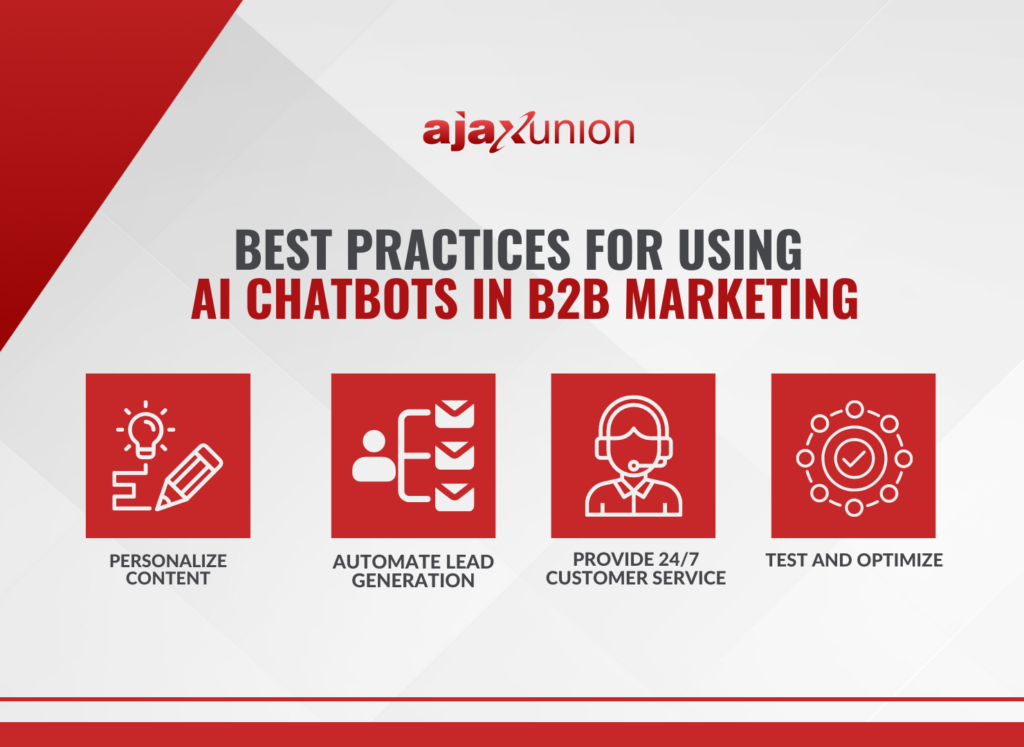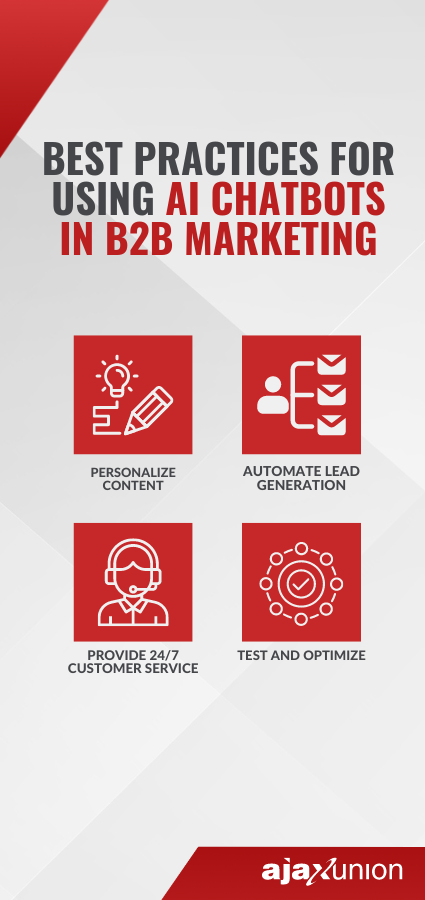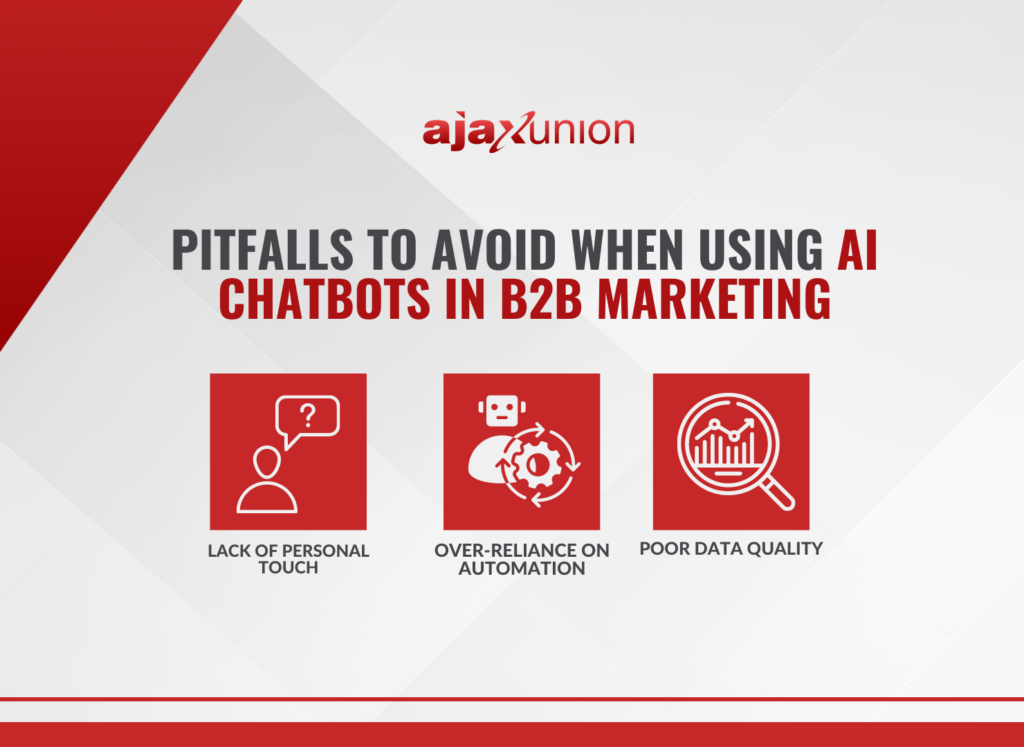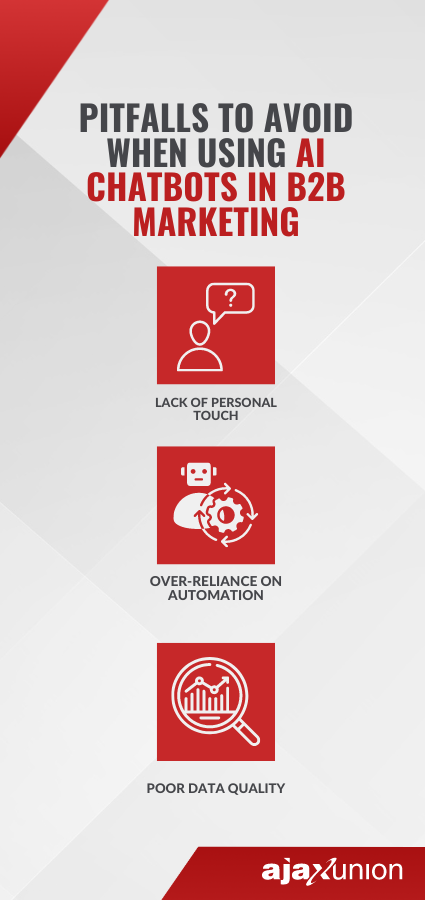Artificial Intelligence has been a buzzword in the marketing industry for some time now. In B2B marketing, AI can help businesses better understand their customers, predict their behavior, and improve the effectiveness of their marketing campaigns.
However, implementing AI in B2B marketing campaigns requires careful planning and execution. In this blog post, we will discuss some best practices and pitfalls to avoid when implementing AI in B2B marketing campaigns.


Best Practices for Using AI Chatbots in B2B Marketing:
- Personalize content creation: AI chatbots can analyze data and personalize the content for each user, such as product recommendations or customized content. By personalizing the content, you can increase engagement and build stronger relationships with your prospects and customers.
- Automate lead generation: AI chatbots can automate lead generation by engaging with prospects and collecting their contact information. This can help increase the efficiency of your lead generation process and improve your conversion rates.
- Provide 24/7 customer service: AI chatbots can provide round-the-clock customer service, answering frequently asked questions and resolving issues quickly. This can help improve customer satisfaction and reduce response times.
- Test and optimize: It’s important to test and measure the effectiveness of your AI chatbot to optimize its performance. This includes analyzing data, making adjustments, and continually improving the chatbot’s ability to engage with users and drive conversions.


Potential Pitfalls to Avoid:
- Lack of personal touch: While AI chatbots can personalize content and responses, there is a risk of losing the human touch that B2B marketing often requires. It’s important to balance automation with personalization to create a more authentic experience for your users.
- Over-reliance on automation: It’s important to remember that AI chatbots should be used to enhance, not replace, human interaction. Over-reliance on automation can lead to a loss of empathy and a lack of understanding of the customer’s needs.
- Poor data quality: AI chatbots rely on data to provide personalized content and responses. Poor data quality can lead to inaccurate recommendations and a poor user experience. It’s important to ensure that your data is clean, accurate, and up-to-date.
Implementing AI in B2B marketing campaigns can help businesses improve their targeting, personalization, and engagement with customers. However, it requires careful planning and execution. By following best practices and avoiding common pitfalls, businesses can harness the power of AI and stay ahead of the competition.
For a personalized approach to AI-powered conversations, consider checking out evyAI.
Want some more marketing insights? Check out our resource library.
In need of PERSONALIZED advice on how to choose a marketing agency that’s right for your business? Schedule a FREE strategy session with us and we’ll give you complementary insights on your marketing tactics.
